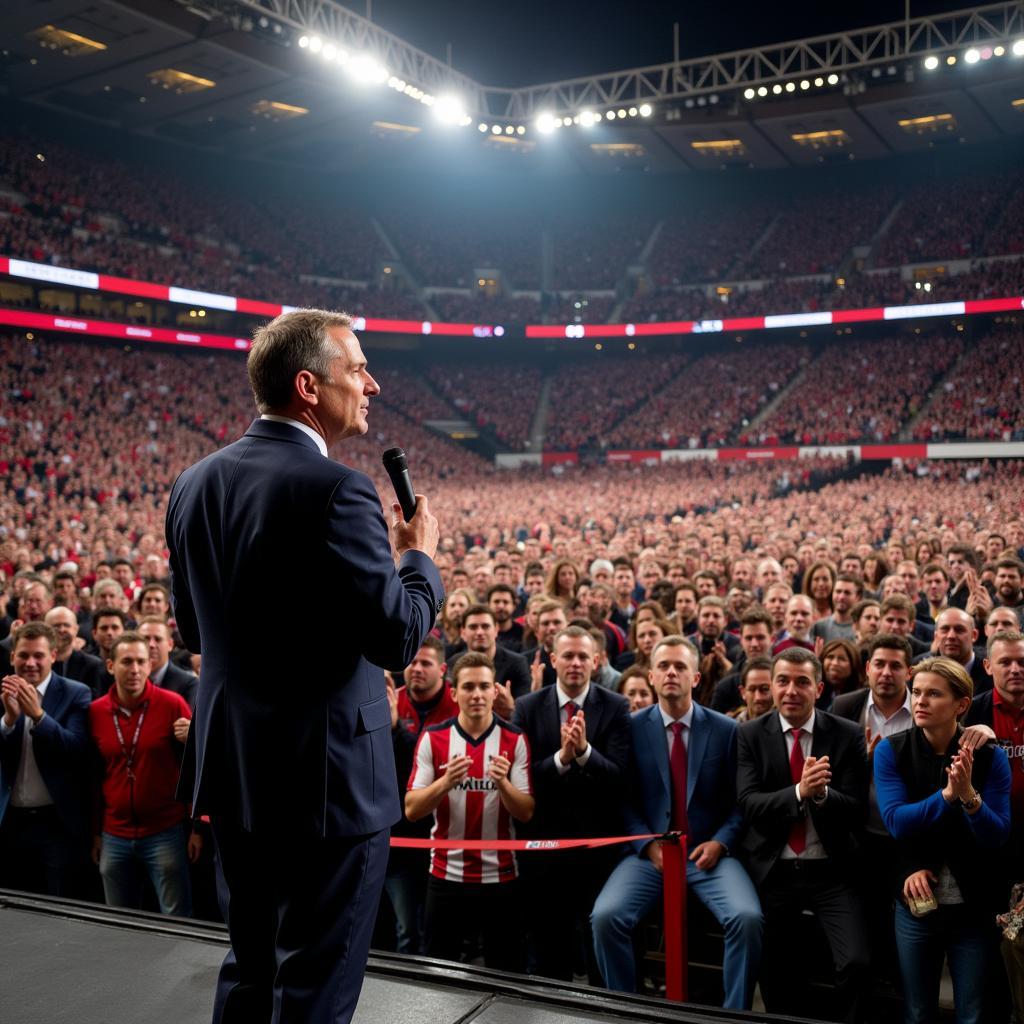As a football club, negative fan reactions are an inevitable part of the game. Whether it’s due to a string of poor performances, controversial decisions made by the management, or simply the passionate nature of the sport, dealing with dissatisfied fans is a challenge that all clubs face. However, how a club chooses to handle these situations can have a significant impact on its reputation, fan loyalty, and ultimately, its success. This article will explore effective strategies and best practices for addressing negative fan reactions, ultimately aiming to mend fences and build stronger relationships with the fanbase.
 Fans protesting outside a football stadium
Fans protesting outside a football stadium
One of the most important things a club can do is to acknowledge and validate fan concerns. This means actively listening to what fans have to say, even if it’s negative, and acknowledging the validity of their feelings. Ignoring or dismissing fan criticism will only make the situation worse, leading to further alienation and resentment. Open communication channels are crucial. This can include regular fan forums, Q&A sessions with management, and active engagement on social media platforms. By providing fans with a platform to voice their opinions and concerns, clubs can demonstrate that they value fan feedback and are committed to addressing their concerns.
 Club CEO addressing fans in a meeting
Club CEO addressing fans in a meeting
Transparency is another key factor in handling negative fan reactions effectively. When fans understand the reasoning behind certain decisions, even if they don’t agree with them, they are more likely to be understanding and supportive. For example, if a club is forced to sell a star player due to financial constraints, explaining the situation honestly and openly to the fans can help to mitigate the backlash. However, it’s important to strike a balance between transparency and confidentiality. While it’s important to be open with fans, clubs also have a responsibility to protect sensitive information, such as player contracts and financial details.
In addition to addressing fan concerns directly, clubs can also take proactive steps to prevent negative reactions from arising in the first place. This includes:
- Setting realistic expectations: Fans are more likely to be understanding of setbacks if they have realistic expectations about the team’s capabilities.
- Building a strong team culture: A positive and unified team culture can help to foster a sense of loyalty and support amongst the fanbase.
- Engaging with the community: Clubs that are actively involved in their local communities are more likely to have the support of their fans.
In conclusion, handling negative fan reactions effectively is an ongoing process that requires a proactive and empathetic approach. By listening to fans, communicating transparently, and taking steps to build stronger relationships, clubs can navigate these challenges successfully and create a more positive and supportive fan environment.
